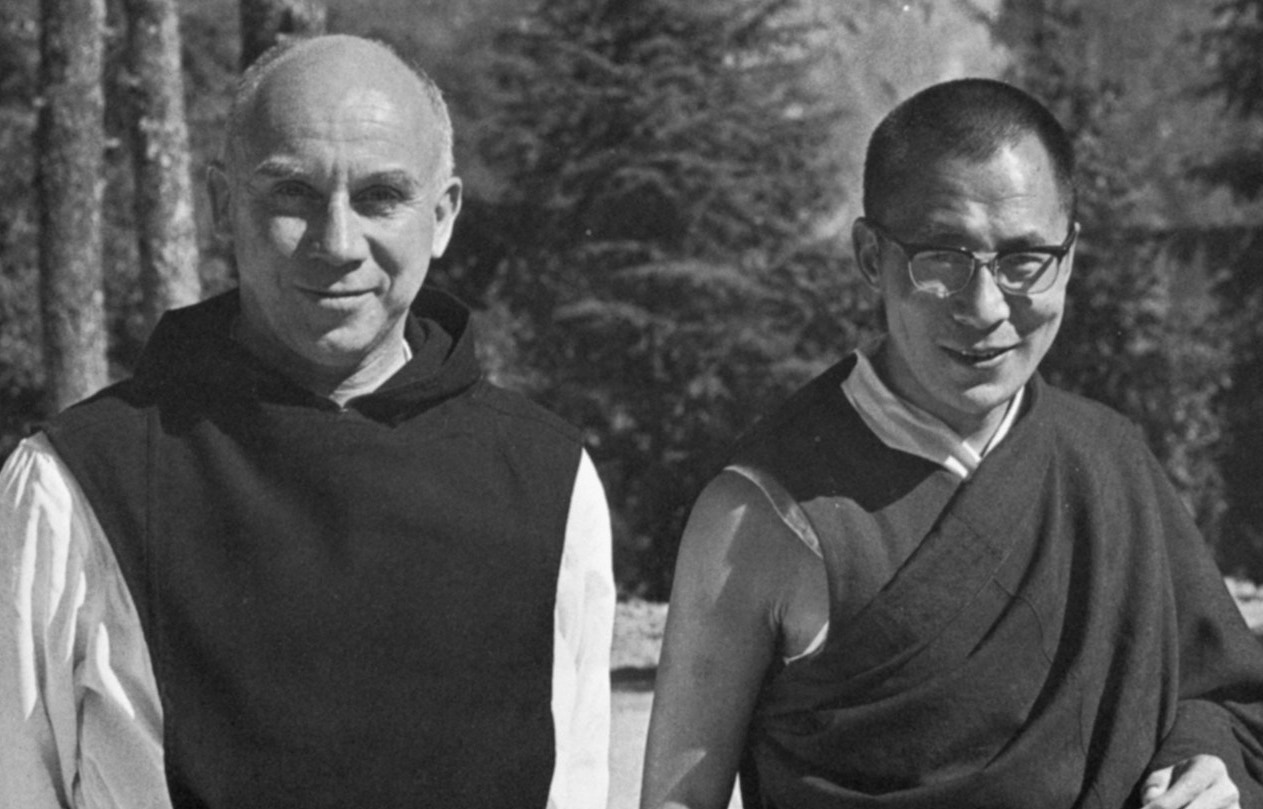1) On authenticity
Now suppose some loon comes up and says: “Have you found the real Asia?” It is all real as far as I can see. Though certainly a lot of it has been corrupted by the West. Neither Victorian Darjeeling nor the Kennedy-era Oberoi can be called ideal Asia. I remember Deki Lhalungpa laughing at the phony minarets in the Tag dining room at the Oberoi. Still, that’s Asia too.
2) On faith and doubt
Faith means doubt. Faith is not the suppression of doubt. It is the overcoming of doubt, and you overcome doubt by going through it. The man of faith who has never experienced doubt is not a man of faith.
3) On being a monk
Are monks and hippies and poets relevant? No, we are deliberately irrelevant. We live with an irrelevance which is proper to every human being. The marginal man accepts the basic irrelevance of the human condition, an irrelevance which is manifested above all by the fact of death. …The office of the monk or the marginal person, is to go beyond death even in this life, to go beyond the dichotomy of life and death and to be, therefore, a witness of life.
4) On beggars
But the routine of the beggars is heart-rending. The little girl who suddenly appeared at the window of my taxi, the utterly lovely smile with which she stretched out her hand, and then the extinguishing of the light when she drew it back empty. I had no Indian money yet. She fell away from the taxi as if she were sinking in water and drowning and I wanted to die. I couldn’t get her out of my mind. Yet when you give money to one, a dozen half kill themselves running after your cab. This morning one little kid hung on to the door and ran whining beside the cab in the traffic while the driver turned around and made gestures as if to beat him away. Sure, there is a well-practiced routine, an art, a theater, but a starkly necessary art of dramatizing one’s despair and awful emptiness. There was the woman who followed me three blocks sweetly murmuring something like ‘Daddy, Daddy, I am very poor’ until I finally gave her a rupee. OK, a contest, too. But she is very poor. And I have come from the West, a rich Daddy.
5) On Calcutta
Calcutta has the lucidity of despair, of absolute confusion, of vitality hopeless to cope with itself. Yet undefeatable, expanding without and beyond reason but with nowhere to go. An infinite crowd of men and women camping everywhere as if waiting for someone to lead then in an ultimate exodus into reasonableness, into a world that works, yet knowing already beyond contradiction that in the end nothing really works. …that each self if the denial of the desires of all the others – and somehow a sign to others of some inscrutable hope… A sign in Calcutta: ‘Are you worried? Refresh yourself with cigars.’
6) On movies in India
People! People! People! Campfires in the streets and squares. Movie posters – those Asian movie posters with strange enormous faces of violent or demented Western gods, the enormous gunners, surrounded by impossible writings. They are a crass, cheap deification of the more obvious emotions: love, hate, desire, greed, revenge. Why not John Wayne with eight arms? …Or the Dance of Shiva with Sinatra?
7) On driving in Asia
The main rule of Asian driving seems to be: never use the brake, just lean on the horn. It is wildly exciting, especially in the Himalayas, where you whiz around corners at dizzy heights and speeds and meet these huge buses coming the other way painted to look like dragons. Usually the road is just about one lane wide anyway, but somehow one manages. I am still alive.
8) On luxury hotels
You Intercon–
Tinental Mam–
Moth Mother Kali con-
Crete Oberoi not yet
Stained with the gray green
Aftermoss of the monsoons
And a big clean pool
(Shacks out front and kids
In the red flowers and
Goats) a big clean pool I say
With one American
General Motors type
Doing a slow breast-
Stroke in the chlorinated
Indigo water where no
Slate-blue buffalo has ever
Got wet.
O thou merciful naked
Jumping millionaire
Rich in skeletons and buffets.
9) On nonconformity
And so I stand among you as one who offers a small message of hope, that first, there are always people who dare to seek on the margin of society, who are not dependent on social acceptance, not dependent on social routine, and prefer a kind of free-floating existence under a state of risk.


